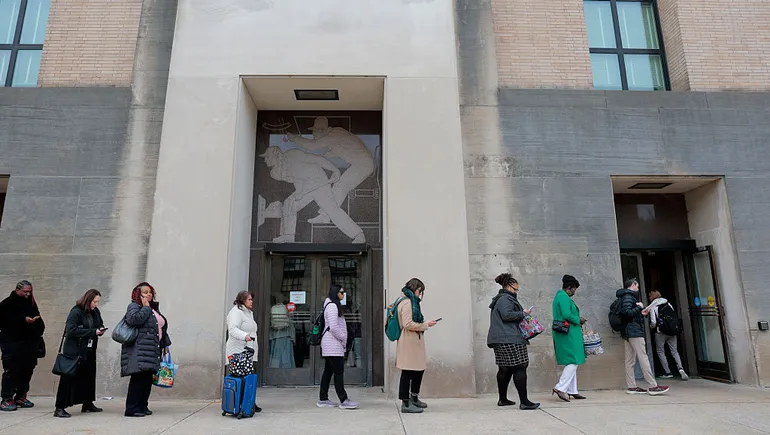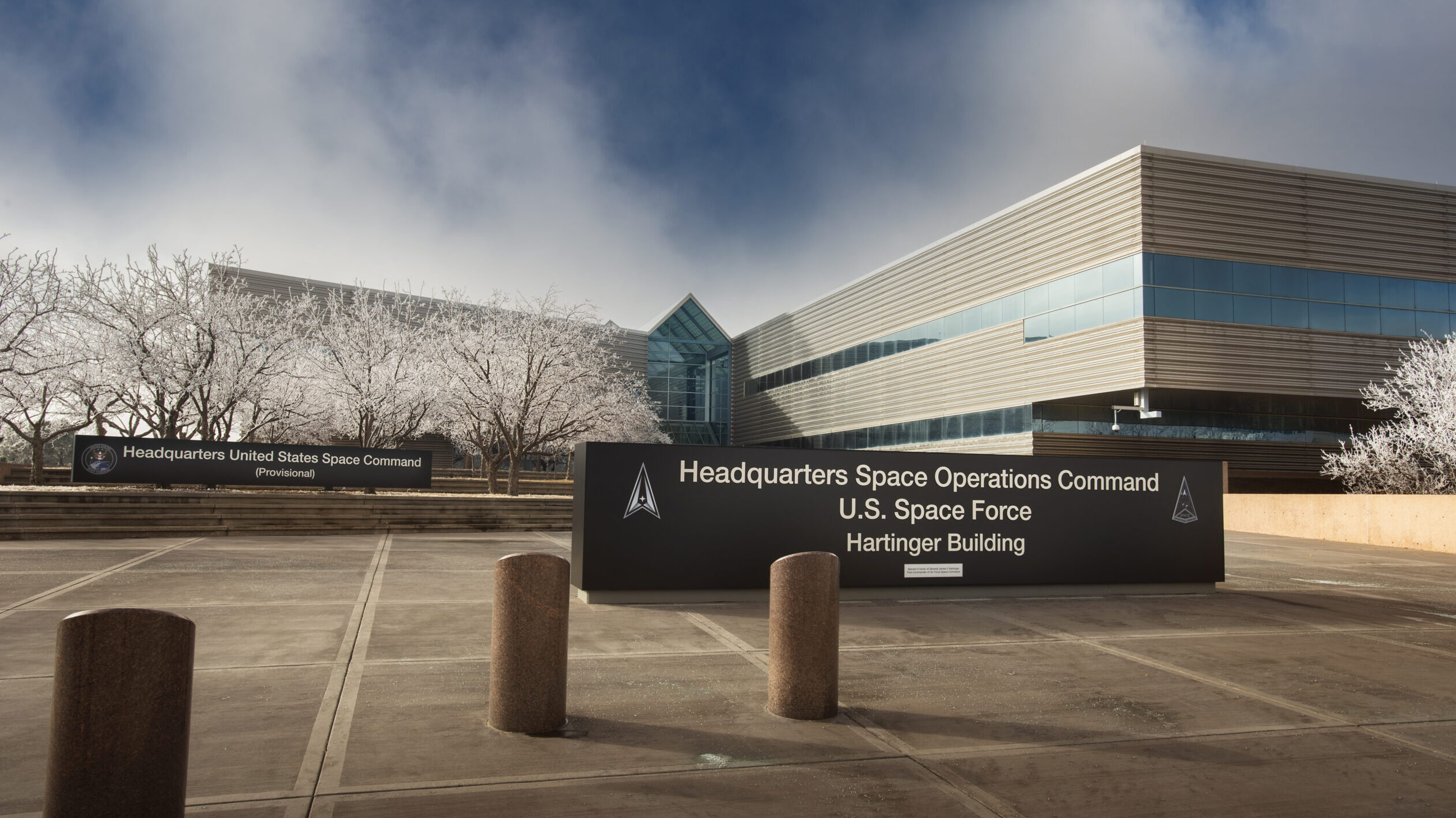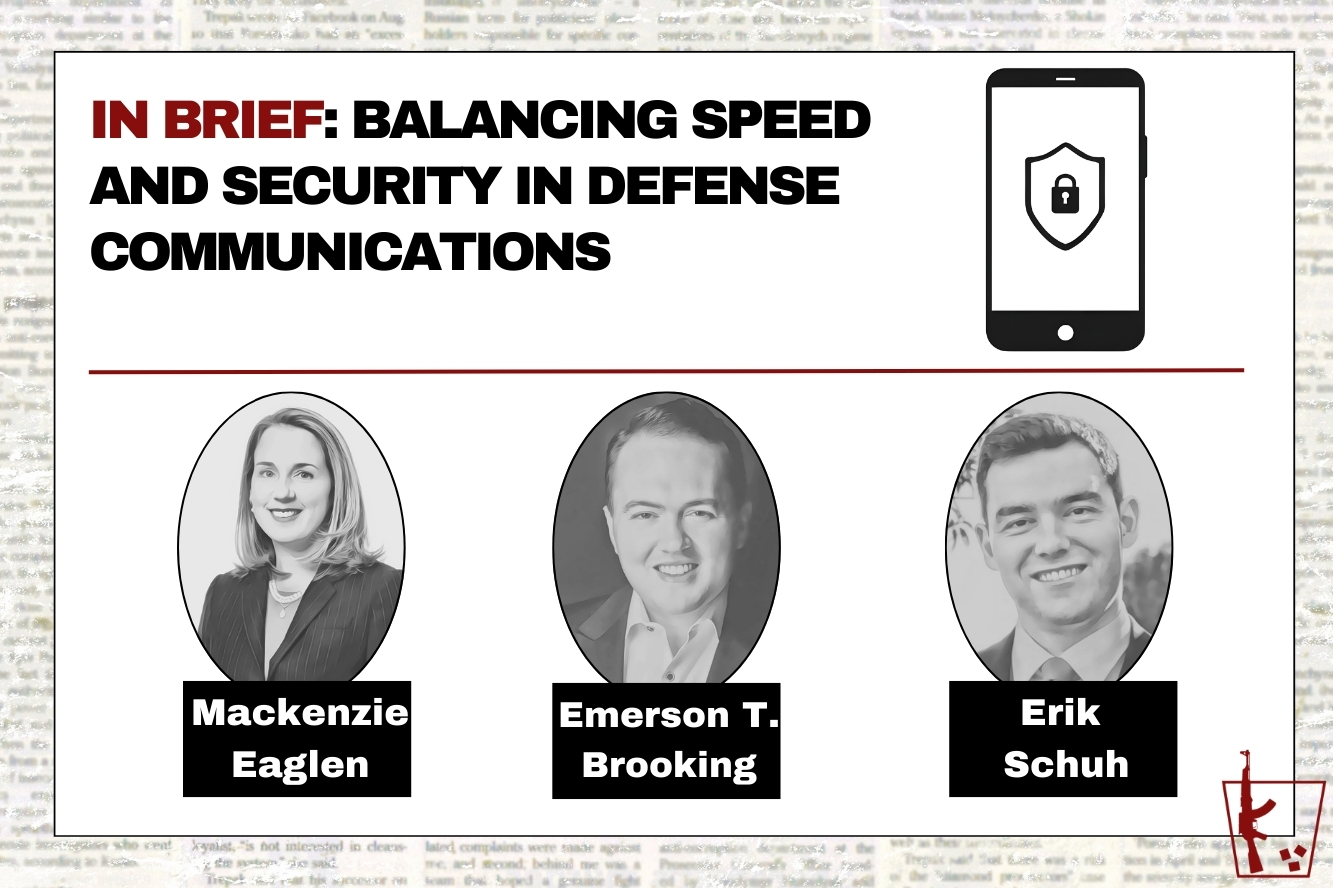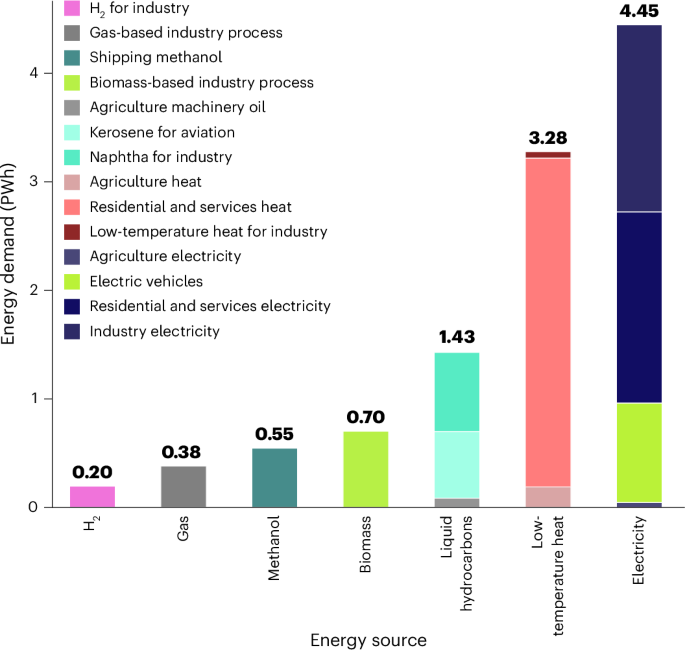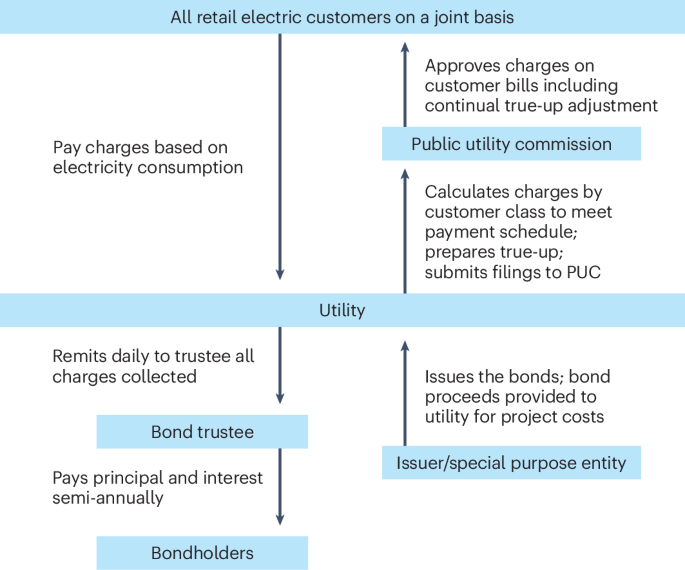Legal Ethics Roundup: Biden Disbarment, TX May End ABA Oversight, Ethics Of Zealous Advocacy, $100M Judicial Election, 3 New EO Threats, Fed Misconduct Survey, Jobs, & More
Your tour of all things related to lawyer and judicial ethics, with University of Houston law professor Renee Knake Jefferson. The post Legal Ethics Roundup: Biden Disbarment, TX May End ABA Oversight, Ethics Of Zealous Advocacy, $100M Judicial Election, 3 New EO Threats, Fed Misconduct Survey, Jobs, & More appeared first on Above the Law.
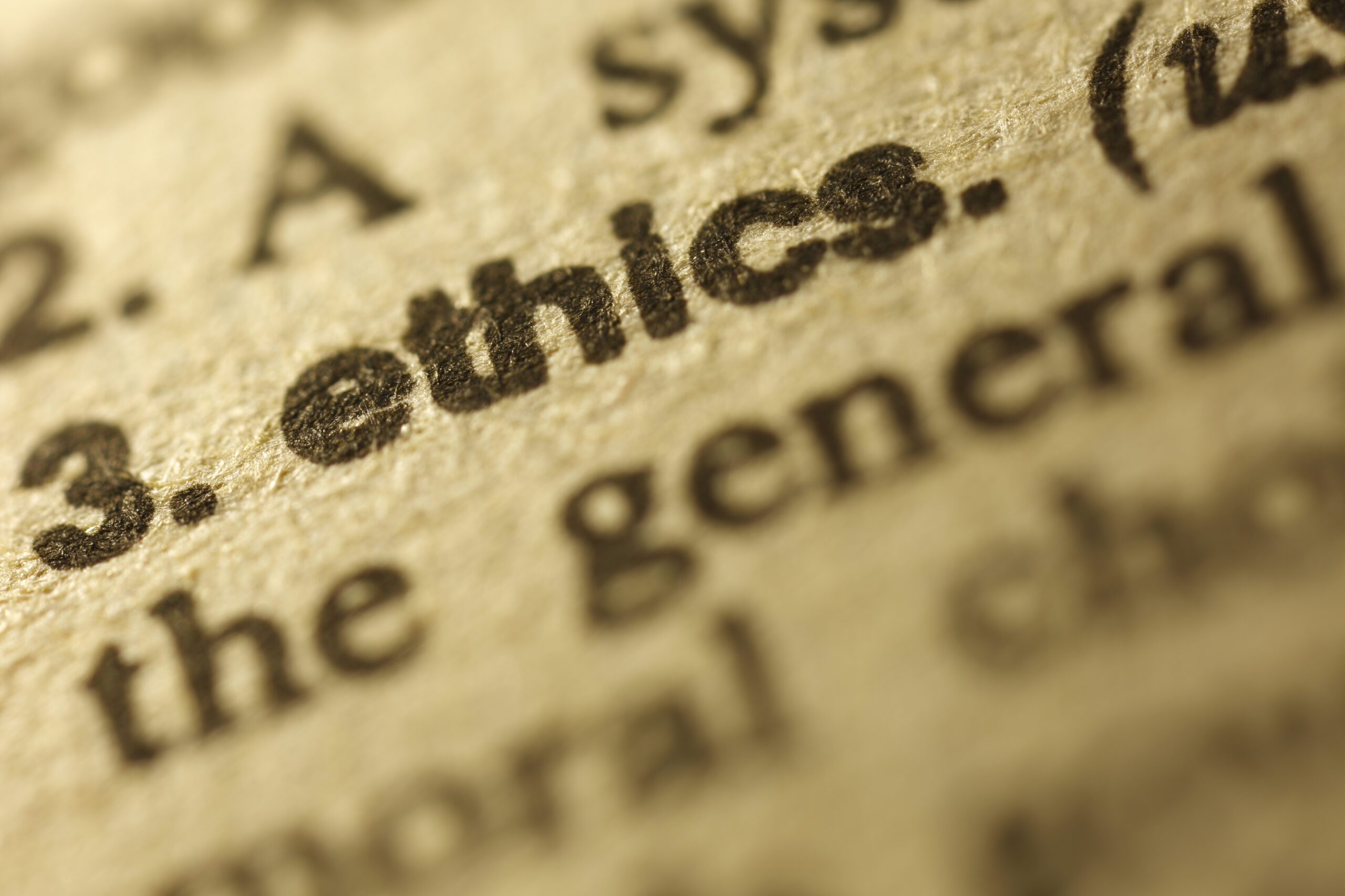
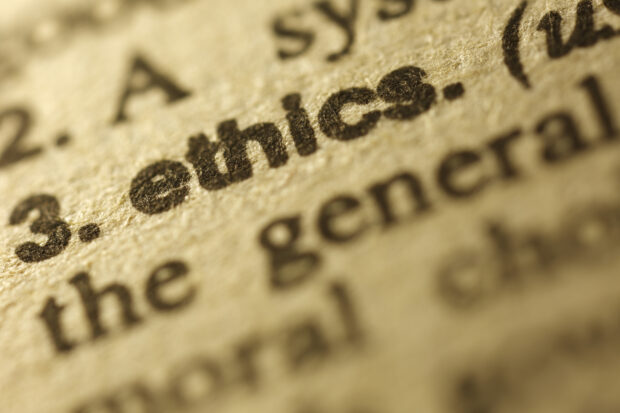
Ed. note: Please welcome Renee Knake Jefferson back to the pages of Above the Law. Subscribe to her Substack, Legal Ethics Roundup, here.
Welcome to what captivates, haunts, inspires, and surprises me every week in the world of legal ethics.
Happy First Monday!
On the first Monday of each month, you get a longer version of the Roundup with recent headlines plus reading recommendations, job postings, events, and other features.
It was another week filled with legal ethics news, so let’s dive right into the headlines but be sure to keep scrolling down for the special First Monday content.
And don’t forget to keep checking the Legal Ethics & Democracy Tracker. It’s a great place to find the latest news if you don’t want to wait until the LER arrives in your email inbox on Monday mornings. Last week brought more statements from law faculty (including Georgetown and UCLA), lawyers (including more than 1,300 former Department of Justice officials and more than 80 Skadden alumni) as well as op-eds by Ray Brescia (Albany), David Cole (Georgetown), Evan Falchuck (Lawyers Defending American Democracy), Amrit Singh (Stanford), Eric Schnapper (University of Washington), and others.
Highlights from Last Week – Top Fifteen Headlines
#1 The Ethics of “Zealous Advocacy.” Two headlines for #1. First, from the Washington Post: “The Justice Department suspended a veteran lawyer after he said in court that officials mistakenly deported a man to prison in his home country of El Salvador and conceded that he did not know the legal basis for the expulsion. Erez Reuveni had worked at the Justice Department for nearly 15 years, most recently as the acting deputy director of the Office of Immigration Litigation. A Justice Department official, speaking on the condition of anonymity to discuss a personnel matter, said he was put on indefinite leave. In response to questions about Reuveni, Attorney General Pam Bondi said: ‘At my direction, every Department of Justice attorney is required to zealously advocate on behalf of the United States. Any attorney who fails to abide by this direction will face consequences.’ … Typically, career staffers at the Justice Department are tasked with handling cases that they may disagree with, but they are expected to follow legal ethics and the professional standards set out by the American Bar Association.” Read more here (gift link). Here’s what the ABA Model Rules of Professional Conduct say about zealous advocacy: “[M]any difficult issues of professional discretion can arise. Such issues must be resolved through the exercise of sensitive professional and moral judgment guided by the basic principles underlying the Rules.These principles include the lawyer’s obligation zealously to protect and pursue a client’s legitimate interests, within the bounds of the law, while maintaining a professional, courteous and civil attitude toward all persons involved in the legal system.” Second, from Bloomberg Law, a reminder about this headline from February: “Bondi’s Attorney Advocacy Memo Raises Independence Concerns.” Read more here.
#2 The Ethics of Money in Judicial Elections – Wisconsin Supreme Court Topped $100M. Two headlines for #2. First, from Axios: “Wisconsin’s Supreme Court election is the most expensive judicial race in U.S. history.” Read more here. Second, from National Public Radio: “County judge Susan Crawford has won election to the Wisconsin Supreme Court, according to a race call by the Associated Press. Crawford defeated Brad Schimel, who received financial support from Elon Musk and an endorsement from President Donald Trump. Her victory means that the nonpartisan court’s 4-3 liberal majority will remain in place.” Read more here.
#3 “Milbank Reaches Deal With Trump as Divide Among Law Firms Deepens.” From Reuters: “A fourth major law U.S. law firm, Milbank, struck a deal on Wednesday with Donald Trump amid the U.S. president’s campaign against perceived enemies within the legal industry, while another law firm fought back in court against an executive order targeting its business. New York-headquartered Milbank committed $100 million in free legal services to mutually agreed-upon initiatives with the White House and said it would not engage in diversity-based hiring, mirroring the deals Trump has reached with other law firms that he threatened to punish for being ideologically biased and unfair to him.” Read more here.
#4 Executive Order Threatening Willkie Farr & Gallagher Avoided With Settlement. Two headlines for #4. First, from the New York Times: “President Trump announced Tuesday another deal with a law firm he had targeted for punishment, this time the one that employs Doug Emhoff, former Vice President Kamala Harris’s husband. Mr. Trump said the firm had committed to $100 million in pro bono legal work to causes he had championed. ‘Willkie’s pro bono Committee will ensure that new pro bono matters are consistent with these objectives, and that pro bono activities represent the full political spectrum, including Conservative ideals,’ Mr. Trump said on social media.” Read more here (gift link). Second, from CNN: “Doug Emhoff publicly criticizes his law firm for coming to agreement with Trump administration.” Read more here.
#5 “Law Firm Kirkland & Ellis in Talks With White House to Avoid Executive Order.” From the Wall Street Journal: “Kirkland & Ellis, the largest U.S. law firm by revenue, is in talks with the White House to avoid an executive order similar to those levied against several of its rivals, according to people familiar with the matter. The firm, which has some 4,000 lawyers and brought in about $9 billion last year, is one of the White House’s next targets for sanctions, some of the people said.” Read more here (gift link).
#6 “Inside Elite Law Firms, Protests and Quitting After Trump Deals” — Will this “Hamstring” Recruitment? From the New York Times: “Objections to the deals could have other implications for the firms as they try to retain talented associates and recruit new ones from top law schools. On Monday, a student-run group at Georgetown University’s law school sent a letter to Skadden saying it would not participate in a recruiting event the next day at the firm’s Washington office. The letter, from several of the more than 150 members of the Georgetown Energy Law Group, said the organization had decided not to participate in response to Skadden’s ‘pre-emptive acquiescence to pressure from the Trump administration.’” Read more here (gift link).
#7 “Texas Justices Eye Nixing ABA Approval In Bar Admissions.” From Law360: “The Texas Supreme Court indicated Friday that the justices are considering whether to alter or end a rule requiring graduation from a law school approved by the American Bar Association for admittance to the Lone Star State bar. The order, which seeks comments on that rule and ‘alternatives the court should consider,’ follows criticism of the ABA leveled by Chief Justice Jimmy Blacklock at his February state of the judiciary address to Texas lawmakers.” Read more here. Download the Order here.
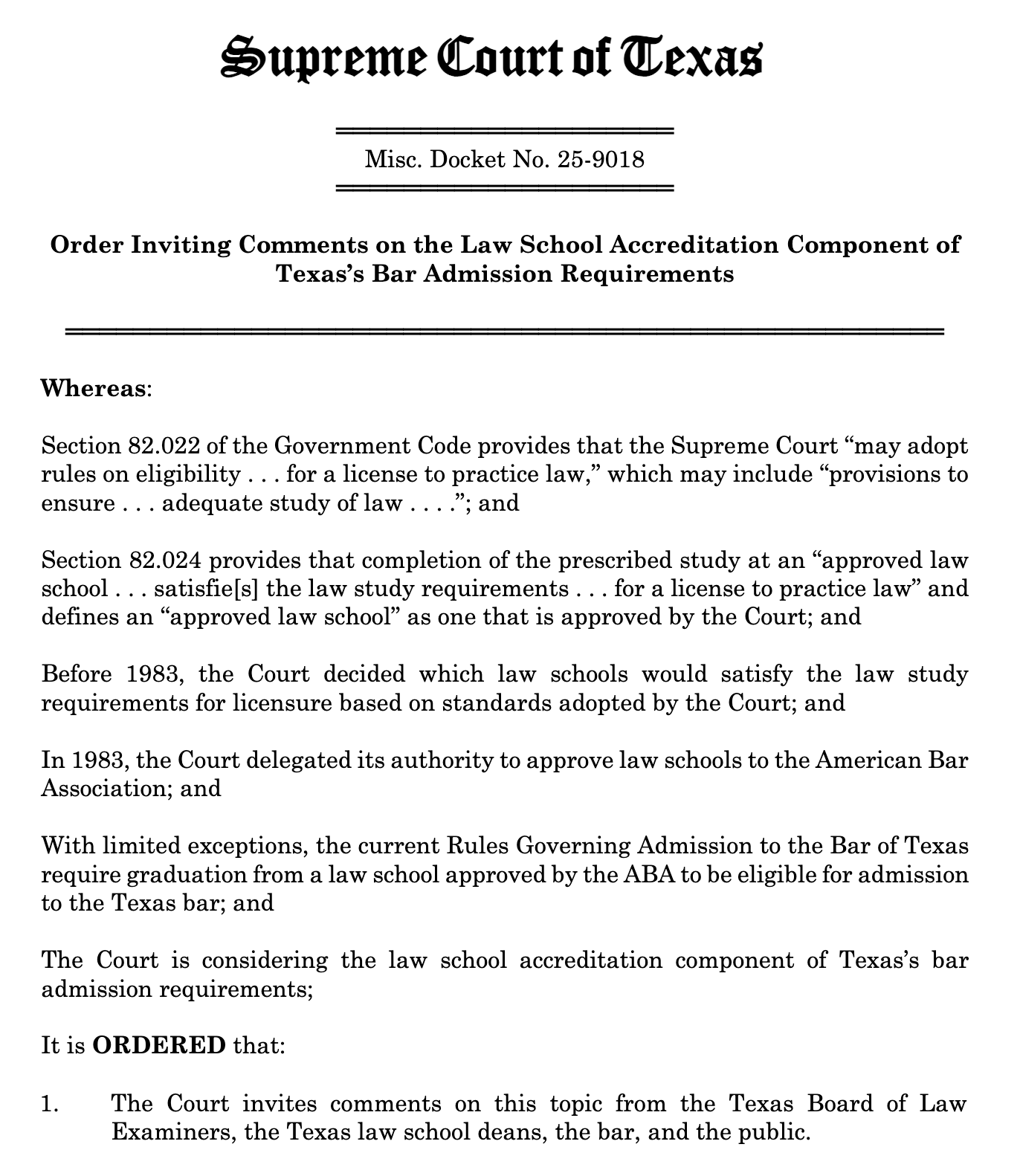
#8 “Hundreds of Law Firms, Former Judges Sign Onto Briefs in Support of Perkins Coie.” From The Hill: “Hundreds of law firms and former judges have signed onto friend-of-the-court briefs in support of Perkins Coie as the law firm challenges President Trump’s executive order targeting it. More than 500 law firms and 300 retired judges asked for leave to file two amicus briefs condemning Trump’s order stripping security clearances from and severing government ties with the major law firm, which previously did work for Democrats.” Read more here. A group of 363 law professors also filed a brief – see here.
#9 “Hunter Biden Agrees To Disbarment In District of Columbia.” From Law360: “Hunter Biden has agreed to give up his license to practice law in Washington, D.C., according to an attorney disciplinary board’s report issued Tuesday. The former president’s son consented to disbarment in a March 24 affidavit that was filed under seal, the Board on Professional Responsibility said in a report. In its brief report, the board recommended that the D.C. Court of Appeals accept Biden’s consent to disbarment. The appeals court has final say on attorney discipline in Washington. Counsel for Biden did not immediately respond to a request for comment Tuesday. The D.C. Office of Disciplinary Counsel declined to comment on the case. Biden’s law license has been suspended in the nation’s capital for the past nine months. The D.C. Court of Appeals suspended him in June after his conviction on three federal gun charges in Delaware.” Read more here.
#10 “Guidance on Solicitation Limits After L.A. Fires.” From the Office of the California Attorney General: “‘As the Attorney General serving Californians, I know the great honor and privilege that working in the legal field can bring. With that great privilege, also comes great responsibility,’ said Attorney General Rob Bonta. ‘I encourage attorneys practicing in California to familiarize themselves with laws governing client solicitation after a natural disaster or catastrophe. Given the great collective damage of the Los Angeles fires, attorneys should ensure they are practicing ethically and in compliance with the law.’ The State Bar of California has also warned the public to watch out for and report potential fraud by lawyers.” Read more here.
#11 “Granddaughters of a Paul Weiss Patriarch Deplore the Firm’s Trump Deal.” From The New York Times: “Two weeks ago, Brad Karp, chairman of Paul, Weiss, Rifkind, Wharton & Garrison, announced that President Trump would dismiss an executive order aimed at the law firm in return for commitments that included $40 million in pro bono legal services for causes Mr. Trump championed. … But last week, Judge Rifkind’s granddaughters Amy and Nina Rifkind, both lawyers themselves, wrote to Mr. Karp, saying they were stunned by the deal he had personally hammered out at the White House, and by how he had invoked their grandfather’s principles to justify it.” Read more here (gift link).
#12 Grassroots Group of Law Students Track 300+ Law Firm Responses to Attacks on the Legal Profession. From LinkedIn: “We are a grassroots group of law students who were extremely disappointed to see members of the legal profession—law firms, Department of Justice lawyers, members of the Trump Administration—completely disregard the U.S. Constitution, the rule of law, legal ethics, and equal treatment and protection under the law. … We created this spreadsheet based on publicly available information to help law students make decisions that align with their values.” Read more here and view the tracker here. (H/T Mari Latibashvili)
#13 “US Education Department Closure Imperils Law School Finances, Deans Say.” From Reuters: “The Trump administration’s recent moves to shutter the U.S. Department of Education and shift management of the $1.6 trillion federal student loan program to the Small Business Administration threaten to disrupt the flow of money vital to law school operations, deans and other legal education experts said.” Read more here.
#14 “Judiciary Employee Survey Shows General Job Happiness, But a Reluctance to Report Workplace Misconduct.” From CNN: “Fewer than half of employees of the federal judiciary believe court workers are willing to report instances of workplace misconduct, according to results of a long-awaited survey conducted by the judicial branch. The judges who spearheaded the review said, in a press call shortly after the report was released, the judiciary branch compared ‘favorably’ to the other two branches of the US government when it comes to employees’ workplace happiness, with 84% reporting that they were satisfied or very satisfied with their jobs. Still, judiciary leaders concede that more has to be done to encourage workers to report any professional misconduct that they’re subjected to. The survey, released Monday and conducted by Federal Judicial Center researchers, was part of a larger effort launched by Chief Justice John Roberts in 2018, at the height of the #MeToo movement, to address harassment, abuse and other misconduct judicial employees suffered in their jobs – including harassment they received from judges.” Read more here.
#15 “Why American Lawyers Must Fight Democratic Backsliding.” From Harvard’s The Practice Magazine: “David B. Wilkins, faculty director of the Center on the Legal Profession, sat down with Scott L. Cummings, the Robert Henigson Professor of Legal Ethics at the UCLA School of Law, to talk about democratic backsliding in the United States and what the legal profession can do.” Cummings explained: “disabling law firms from representing interests that are opposed to the administration effectively disables the adversarial system and the rule of law—which is how democracies die.” Read their full interview here.
Ethics Reform Watch
A new ABA Formal Opinion issued on April 2, 2025, addresses the termination of client representation under Model Rule 1.16. It includes a dissent, which is unusual for ABA ethics opinions. Here’s the Opinion summary:
ABA Model Rule of Professional Conduct 1.16(b)(1) permits a lawyer to voluntarily end, or seek to end, an ongoing representation if “withdrawal can be accomplished without material adverse effect on the interests of the client.” A lawyer’s withdrawal would have a “material adverse effect on the interests of the client” if it would result in significant harm to the forward progress of the client’s matter, significant increase in the cost of the matter, or significant harm to the client’s ability to achieve the legal objectives that the lawyer previously agreed to pursue in the representation. A lawyer may be able to remediate these adverse effects and withdraw in a manner that avoids or mitigates the harm that the Rule seeks to prevent. The lawyer’s motivation for withdrawal is not relevant under Model Rule 1.16(b)(1). Therefore, under the Model Rules, if the lawyer’s withdrawal does not cause “material adverse effect” to the client’s interests in the matter in which the lawyer represents the client, a lawyer may withdraw to be able to accept the representation of a different client, including to avoid the conflict of interest that might otherwise result.
And from the dissent:
… First, we are concerned that this opinion will only make it more difficult to convince lawyers to close files and transform current clients into former clients when they have completed their work on a matter. … Second, the “hot potato” portion of the opinion is incomplete. … Finally … the opinion also fails to offer guidance for transactional lawyers. It only addresses “hot potato” situations in litigation as if they are deliberate decisions made before accepting a new representation. It does not meaningfully address common situations in transactional matters such as where a lawyer or firm terminates the representation of a business client in order to take on the representation of a different client in an adverse transaction or other non-litigation matter. Accordingly, we dissent, in part, from this opinion.
Read Formal Opinion 516 in full here.
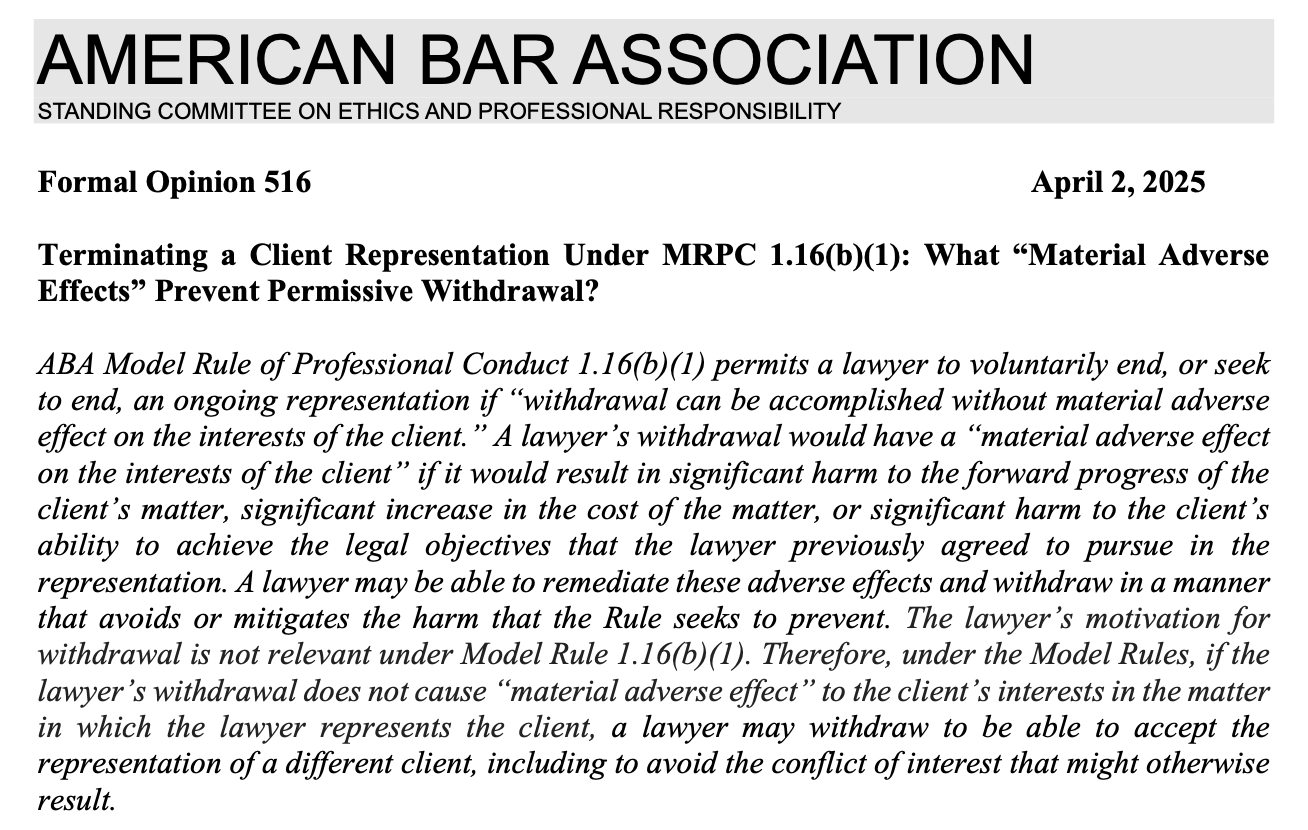
Legal Ethics History
To better understand and appreciate our current moment, it might be helpful to revisit the response of lawyers in the early 1950s to another era of government pressure. From Clay Risen in Politico: “Today we once more see a legal community divided over how to respond to a mounting legal crisis in a climate of confusion and fear. After the firm of Paul, Weiss agreed to a series of concessions to avoid presidential punishment, many observers worried that the rest of the nation’s top firms — stocked with some of America’s best legal minds — would follow suit. It is important to recognize the differences between then and now — Arnold, Fortas & Porter did not face an administration bent on punishing its perceived enemies. Still, the firm’s story offers a refreshing example of a firm that went the other direction and stood on principle when its peers did not.” Read more here from Risen, author of the book RED SCARE: Blacklists, McCarthyism, and the Making of Modern America.
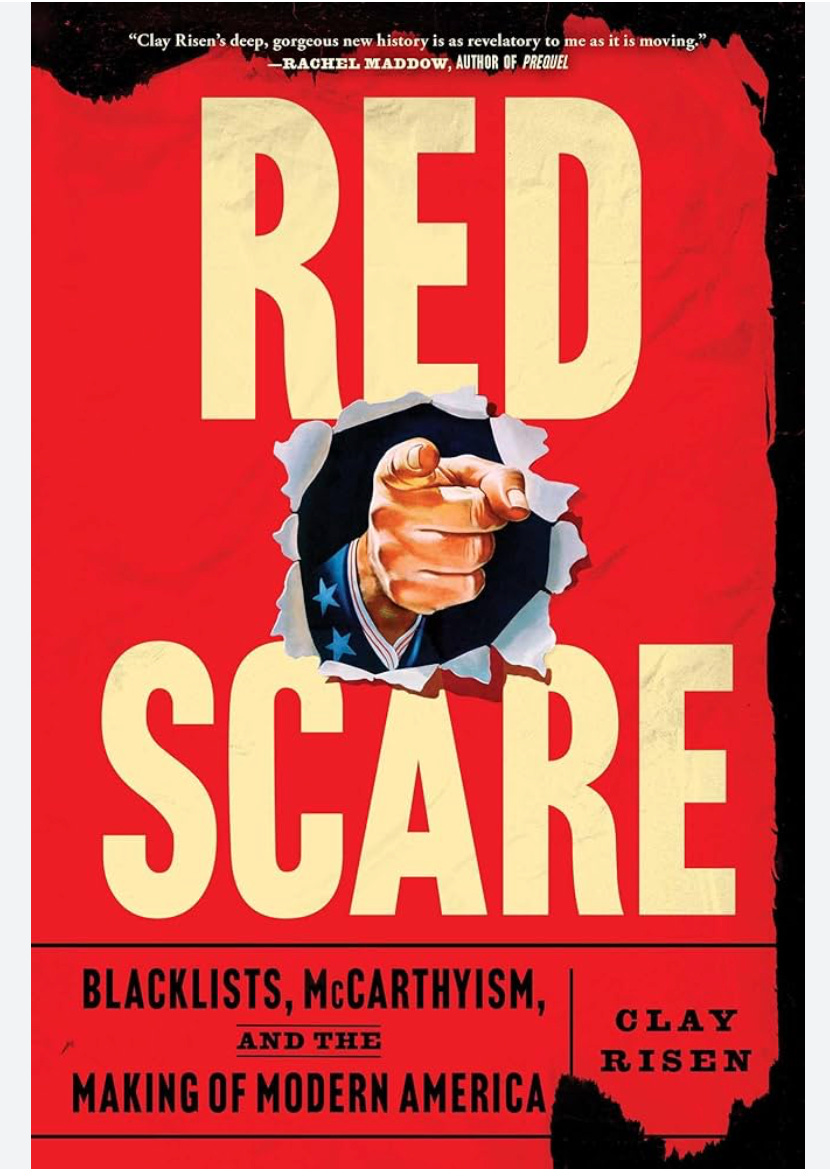
Recommended Reading
Recommendation #1: “On the Effects of Occupational Licensing on the Legal Profession.” From Jonathan Adler (Case Western) at The Volokh Conspiracy: “Are state bar licensing requirements just a barrier to entry that reduces the quantity and increases the cost of legal services? Do they also improve the quality of legal services and protect consumers? Count me among those who is generally skeptical of state occupational licensing requirements. So I read with interest a new study by Adam Chilton, Jacob Goldin, Kyle Rozema, and Sarath Sanga, Occupational Licensing and Labor Market Mobility: Evidence from the Legal Profession.” Read more here.
Recommendation #2: “Can Prosecutors’ Offices Preserve Public Confidence in their Nonpartisanship – and, if so, How?” by Bruce Green (Fordham) and Rebecca Roiphe (NYLS). From the abstract:
Politicians, the media, and others erode public confidence in prosecutors by accusing them of “weaponizing” their power in cases with political implications. This essay argues that prosecutors’ offices have a responsibility not only to do their work in accordance with professional norms, training and policy that call for nonpartisan decision-making, but also to make affirmative efforts to restore and preserve public faith that prosecutors are in fact acting neutrally, objectively and impartially. Despite limits to what prosecutors’ offices can do in the current climate, this essay suggests some possible measures to counteract the perception of political bias.
Download from SSRN here.
Recommendation #3: “Large Scale Miscarriages of Justice and the Role of Legal Professionals. A Virtue Ethical Perspective” by Iris van Domselaar (University of Amsterdam). From the abstract:
“No compensation can undo the pain and shame inflicted on me and so many other parents.”
“My life has been ruined, my family’s life was almost destroyed, my wife has suffered devastating and life-changing illness, and my daughter almost died.”
“I do remember driving home at night just beside myself with worry about this money and thinking I could just drive my car into a tree and make it stop.”
These quotes illustrate the devastating consequences of large-scale miscarriages of justice in contemporary Western legal systems. They come from victims of the Dutch childcare benefits scandal, the British Post Office scandal, and the Australian Robodebt scandal, which led to widespread debt and bankruptcy, severe poverty, psychological harm, emotional distress, family separations, and, in some instances, even loss of life. In these ‘legal carnages’, legal professionals played a key enabling role, either through indirect or direct active involvement or by turning a blind eye and remaining indifferent to the wrongdoing. Hence, a central question raised by these scandals is: Where were the legal professionals? Should they not have acted differently and done more to protect citizens from these injustices, particularly given their responsibility to uphold the rule of law, justice, liberty, and equality? This paper uses the lens of virtue ethics to understand the failures of legal professionals in these mass injustices and explores how similar scandals can be prevented in the future.Download from SSRN here.
Legal Ethics Trivia
From the Texas Center for Legal Ethics, here’s the question of the month: “Can a lawyer ethically enter into a business transaction with a client?” Test yourself at this website where you can read a short hypothetical, select an answer, and see your results. So far, only 47% have gotten it right. Will you?

Get Hired
Did you miss the 100+ job postings from previous weeks? Find them all here.
-
Assistant Counsel for Discipline/Legal Ethics Investigator, State of Nebraska — Lincoln. Responsibilities include evaluating and reviewing attorney violation grievances, ensuring a thorough understanding of the facts and applicable laws and conducting investigations by gathering evidence, interviewing witnesses, and analyzing legal documents to determine whether there is sufficient factual basis to prosecute attorneys for unethical conduct. Learn more and apply here.
-
Attorney – Assistant Ethics Counsel, Virginia State Bar — Richmond. From the posting: “The Virginia State Bar has an immediate opening for an experienced attorney to work as an Assistant Ethics Counsel. The VSB Ethics department attorneys advise bar members, judges, and out-of-state attorneys through the ethics hotline on a variety of professional regulation issues, including legal ethics, lawyer advertising, and unauthorized practice of law. They also develop and present CLEs, interpret statutes and rules relating to legal ethics, draft legal ethics opinions and rule amendments, and provide counsel and support to assigned committees, task forces and work groups.” Learn more and apply here.
-
Conflicts Attorney, Dorsey and Whitney — Remote Based in Minneapolis, Denver, Seattle, Phoenix, or Salt Lake City. From the posting: “We are seeking a Conflicts Attorney to join our growing team that researches, reviews, and resolves conflict of interest issues related to Firm new business and lateral attorney hires. You will collaborate with Conflicts team members, the Firm’s Ethics Counsel, Claims Counsel, Lawyer Recruiting and attorneys firm-wide to efficiently and effectively assist with matter openings, potential new hires and ongoing maintenance.” Learn more and apply here.
-
Conflicts Attorney, Katten Muchin Rosenman — Los Angeles/Remote. From the posting: “The Conflicts Attorney is responsible for clearing conflicts for all new clients, new matters, and additional party submissions by performing essential duties personally or through delegation to other Conflict Department personnel. Maintains professionalism and strict confidentiality in all client and firm matters.” Learn more and apply here.
-
Conflicts Attorney, Lewis Brisbois — Chicago. From the posting: “Responsible for reviewing conflict check reports and identifying, advising, analyzing and resolving potential conflicts of interest and working directly with attorneys to clear conflicts related to the hiring of new partners, associates, paralegals, and other firm hires.” Learn more and apply here.
-
Conflicts Attorney, Taft — Cincinnati, Cleveland, Columbus, Dayton, Denver, Detroit, Indianapolis or Minneapolis. This role is “responsible for all aspects of the conflicts process, from preparing conflicts search reports as needed, to identifying and resolving possible ethical conflicts and business issues for both new business and lateral matters.” Learn more and apply here.
-
Deputy Ethics Counsel, New Jersey Courts — Ewing, NJ. Responsibilities include directing assigned investigators in the conduct of disciplinary investigations; managing a diverse caseload of disciplinary matters; directing auditors and investigators in the investigation of highly complex cases; prosecuting disciplinary matters virtually and in person before special ethics masters and hearing panels; appearing before the Supreme Court of New Jersey and the Disciplinary Review Board; and developing and presenting CLE programs to the Bar and members of the District Ethics Committees. Learn more and apply here.
-
Intake Attorney, Troutman Pepper — Berwyn, IL. From the posting: “The Intake Attorney is responsible for analyzing and resolving potential conflicts of interest as a key component of the firm’s new business intake and lateral hiring processes.” Learn more and apply here.
-
Lecturer – Legal Ethics and Professional Responsibility – UC Berkeley School of Law. Learn more and apply here.
-
Lead Conflicts Counsel, Husch Blackwell — Washington DC. From the posting: “The Lead Conflicts Counsel serves as a resource to the other Conflicts Counsel as well as others within the department and throughout the firm, providing insight and guidance for navigating unusual or complex conflicts of interest issues, and exercises discretion and independent judgment while complying with departmental and firm policies and procedures. This position is responsible for assuring compliance with applicable Rules of Professional Conduct related to conflicts of interest and client engagement agreements” Learn more and apply here.
-
Office of General Counsel – Conflicts, Latham & Watkins — Boston, DC, NYC, San Diego, San Francisco/Hybrid. This role “is responsible for resolving professional ethics conflicts, other ethics and compliance issues relating to lateral clearances, new business matters, and outside counsel guidelines across the firm’s offices, while reviewing situation-specific conflicts checks as needed.” Learn more and apply here.
-
Professional Responsibility Attorney, Barnes & Thornburg — Remote. Responsibilities include advising Firm attorneys on conflict issues and facilitating the resolution of conflicts of interests; counseling Firm attorneys on a wide variety of ethical and professional issues; reviewing and approving new Firm business to ensure accuracy and adherence with Firm policies and procedures; performing due diligence for all legal and lateral hires; and conducting ethics orientation for lateral and new attorneys. Learn more and apply here.
Upcoming Ethics Events & Other Announcement
Did you miss an announcement from previous weeks? Find them all here.
2025
-
April 25. California State Bar 28th Annual Statewide Ethics Symposium. Free conference via live-stream Zoom (limited to first 3,000 participants). Panel topics include: “Recent Developments in Legal Ethics and Professional Conduct—What You Need to Know;” “Ethical Considerations of Artificial Intelligence in the Practice of Law; ”Blazing a New Trail in the Wild West of Outside Counsel Guidelines;” and “Securing the Bench: Protecting Judges Amid Escalating Threats.” Learn more and register here.
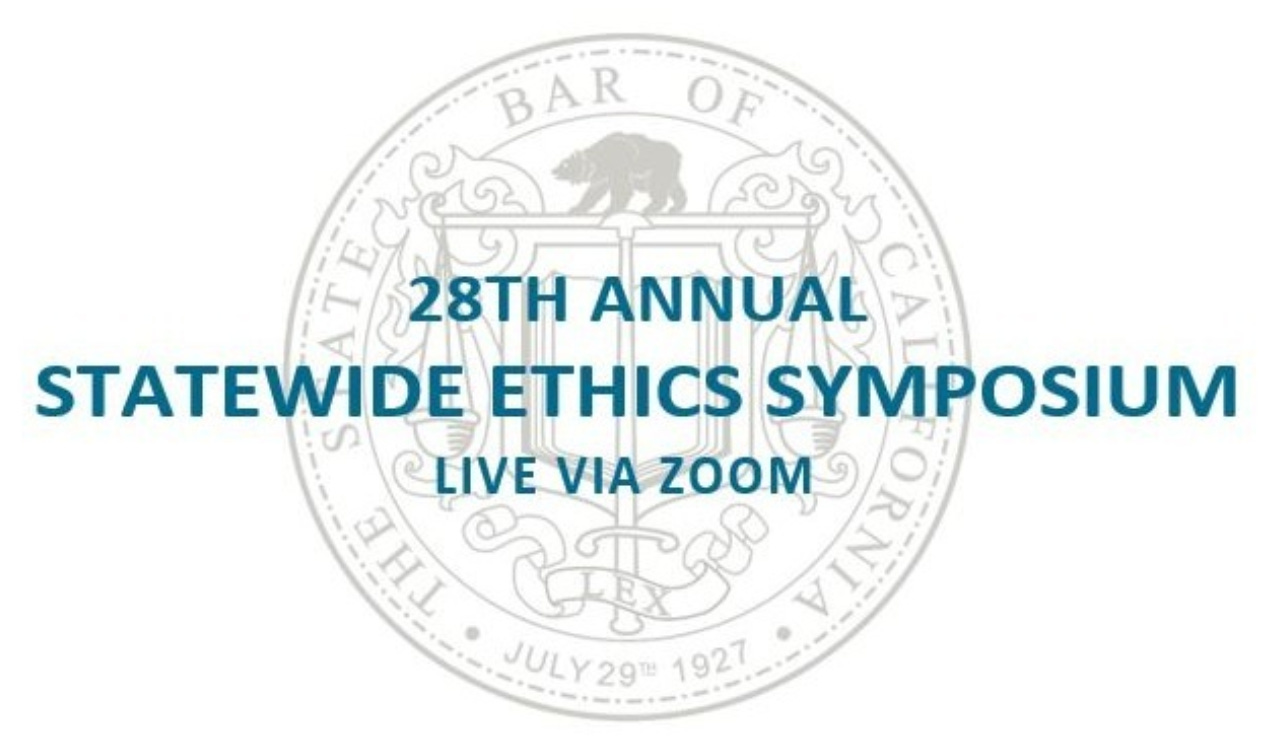
-
May 7. Michigan Attorney Discipline Board Hearing for Sidney Powell, Lin Wood, Scott Hagerstrom, Julia Haller, Brandon Johnson, Howard Kleinhendler, and Gregor Rohl Over Failed 2020 Election Challenges. Learn more here.
-
May 28-30. 50th ABA National Conference on Professional Responsibility in Washington DC. I’ll be there! Join me along with Myles Lynk and Doug Ende on Friday, May 30, for our panel “How to Proceed?: Addressing the Public’s Interest and the Profession’s Concerns When Disciplinary Complaints Are Based on Public Information, Not Personal Knowledge.” Learn more and register here.

-
August 7-9. Association of Professional Responsibility Lawyers Annual Meeting in Toronto. Learn more here.
2026
-
December 2-4. International Legal Ethics Conference at the University of Houston. Learn more here.
Keep in Touch
-
News tips? Announcements? Events? A job to post? Reading recommendations? Email legalethics@substack.com – but be sure to subscribe first, otherwise the email won’t be delivered.
Renee Knake Jefferson holds the endowed Doherty Chair in Legal Ethics and is a Professor of Law at the University of Houston. Check out more of her writing at the Legal Ethics Roundup. Find her on X (formerly Twitter) at @reneeknake or Bluesky at legalethics.bsky.social.
The post Legal Ethics Roundup: Biden Disbarment, TX May End ABA Oversight, Ethics Of Zealous Advocacy, $100M Judicial Election, 3 New EO Threats, Fed Misconduct Survey, Jobs, & More appeared first on Above the Law.









































































